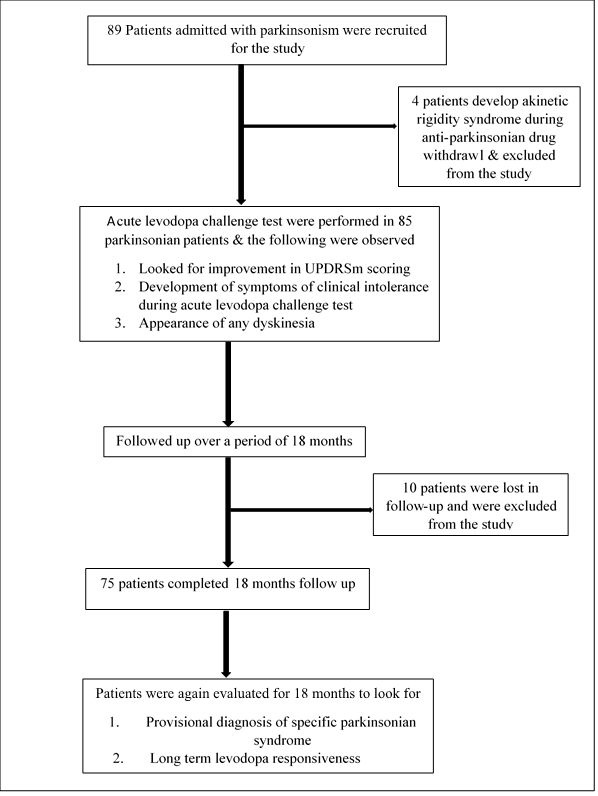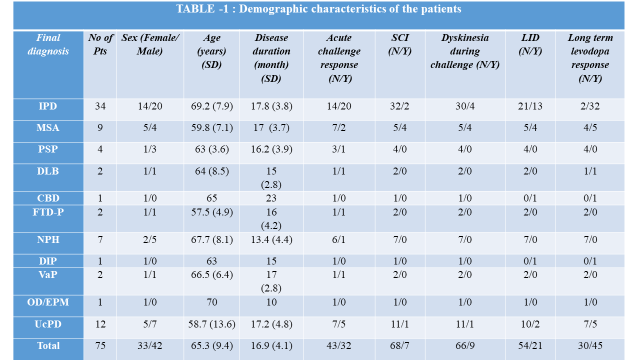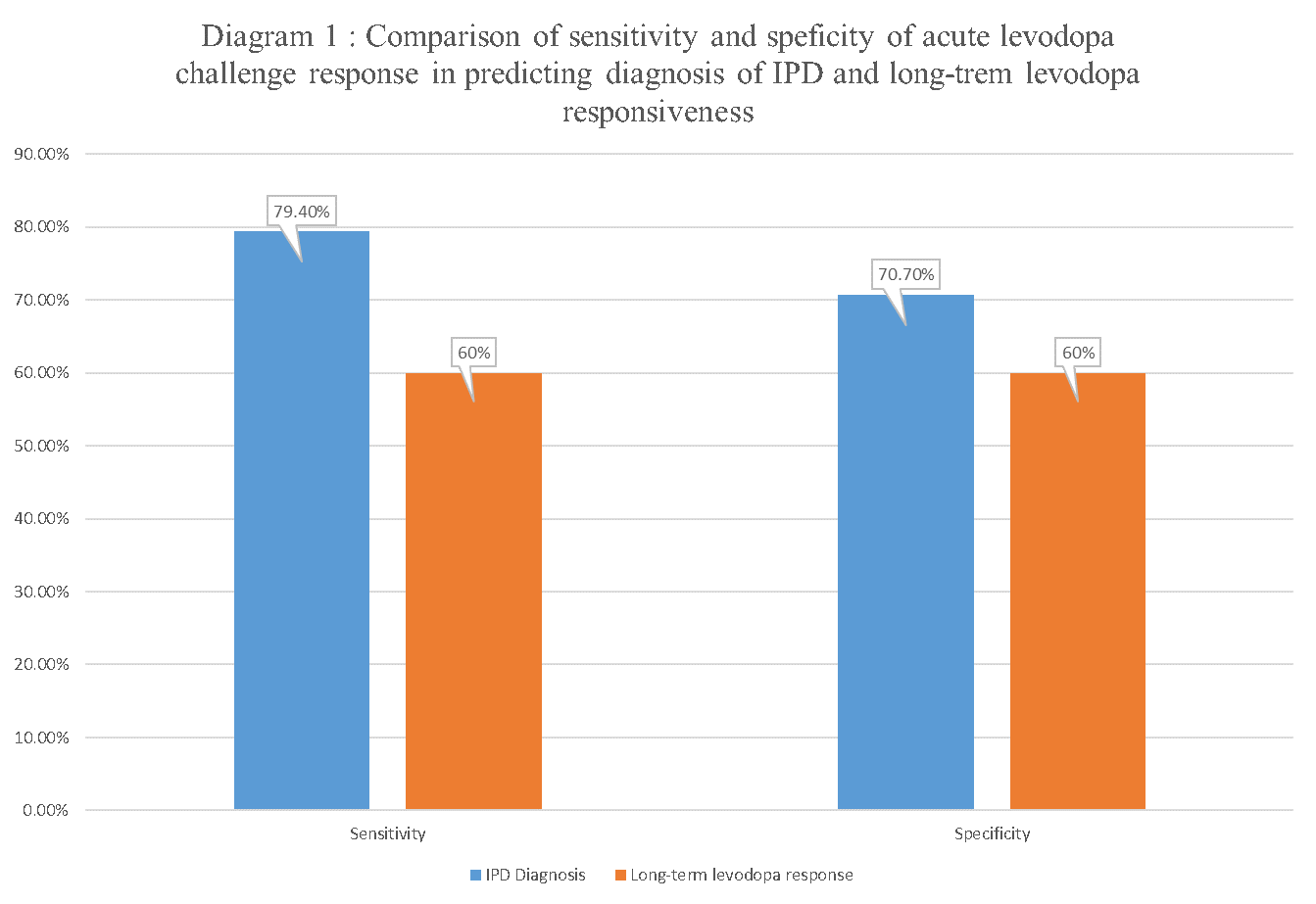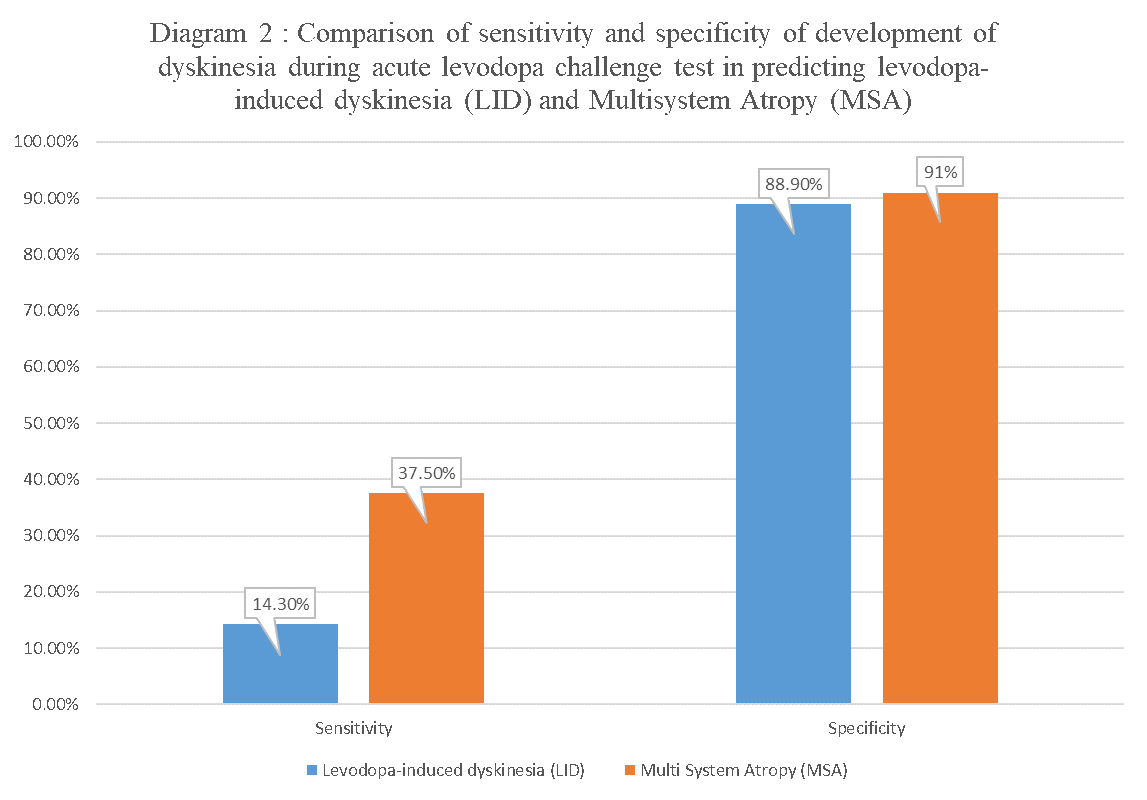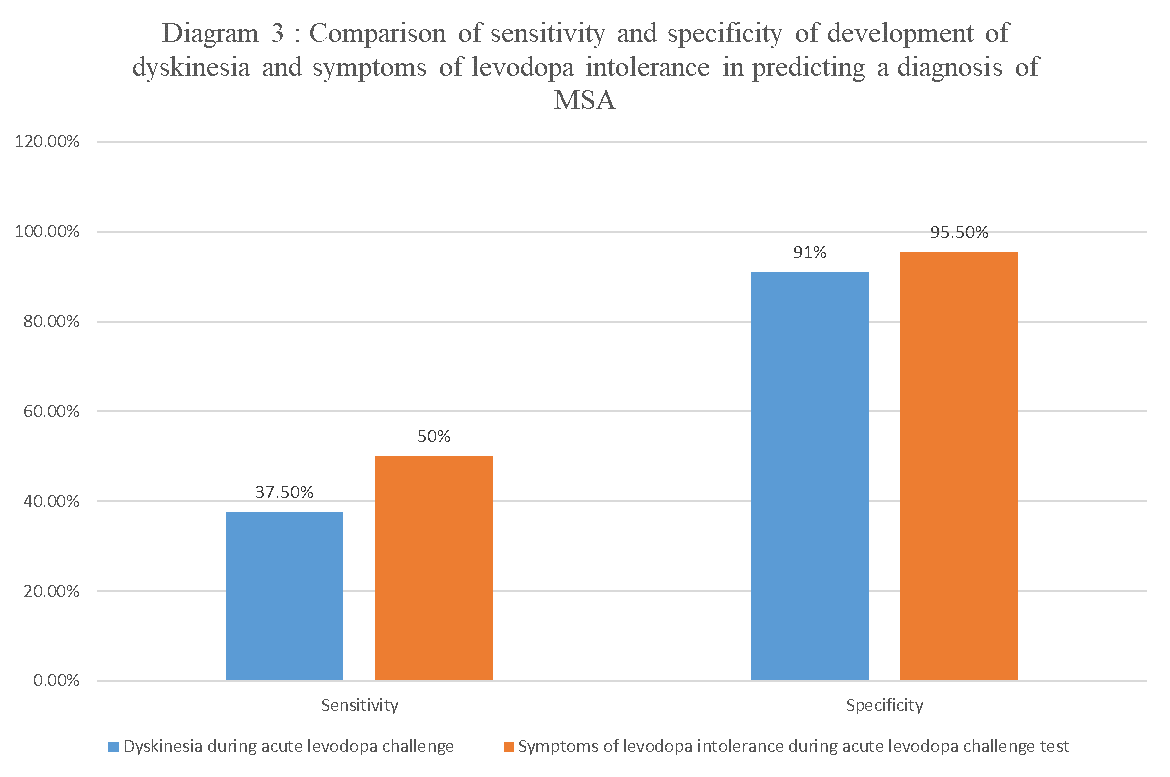Session Information
Date: Sunday, October 7, 2018
Session Title: Parkinsonism, MSA, PSP (Secondary and Parkinsonism-Plus)
Session Time: 1:45pm-3:15pm
Location: Hall 3FG
Objective: This prospective cohort study was conducted to evaluate the sensitivity and specificity of different outcomes of acute levodopa challenge test(ALCT) (motor improvement, development of levodopa intolerance & dyskinesia) to predict IPD, MSA, long-term levodopa responsiveness & LID during chronic levodopa therapy.
Background: ALCT is useful for distinguishing IPD from other parkinsonian syndromes during the early years of parkinsonism, & predicting long-term levodopa responsiveness also. But no other previous studies had addressed the significance of levodopa intolerance or dyskinesia development during ALCT in predicting MSA or LID during chronic levodopa therapy.
Methods: ALCT was performed on 89 pts with parkinsonism of less than two years & were followed up for 18months(fig-1), to make a provisional clinical diagnosis of specific parkinsonian syndromes, to look for long-term levodopa responsiveness & LID during chronic levodopa therapy.
Results: ALCT was positive in 39(52%)cases and negative in 36(48%)cases out of 85 pts who completed the test. At the end of 18 months follow-up, out of 75 pts, 34(45.3 %) were diagnosed as IPD & 41(54.7 %) as non-IPD parkinsonism(tab-1). The sensitivity and specificity of positive ALCT to predict a clinical diagnosis of IPD was 79.4% and 70.7%, respectively. The predictive nature of ALCT concerning chronic levodopa responsiveness differed somewhat from making a diagnosis of IPD(diag-1) with both sensitivity and specificity being 60% in predicting long-term levodopa responsiveness. Development of dyskinesia during ALCT could not significantly predict LID during chronic levodopa therapy with a poor sensitivity of 14.3%. Rather appearance of dyskinesia during ALCT can significantly predict a diagnosis of MSA with high specificity (91%) & low sensitivity (37.5%)(diag-2). The appearance of symptoms of levodopa intolerance(SLI) during ALCT can significantly predict a clinical diagnosis of MSA with high specificity (95.5%) & moderate sensitivity (50%)(diag-3).
Conclusions: To conclude positive ALCT was more useful in predicting a clinical diagnosis of IPD, compared to its efficacy in predicting long-term dopaminergic responsiveness. Though the development of dyskinesia during the test performance could not correctly predict the development of LID during chronic dopaminergic therapy, it can predict a diagnosis of MSA, as also the appearance of SLI during the ALCT correctly predicting MSA.
References: 1. Albanese A, Bonuccelli U, Brefel C, Chaudhuri KR, Colosimo C, Eichhorn T, et al. Consensus statement on the role of acute dopaminergic challenge in Parkinson’s disease. Move Disord 2001; 16:197–201. 2. Este´Vez S, Perez-Lloret S, Merello M, Does clinical intolerance to a diagnostic acute levodopa challenge differentiate multiple system atrophy from PD? International Journal of Neuroscience 2009, 119:2257–2261.
To cite this abstract in AMA style:
M. Acharya, A. Biswas, G. Ganguly, S. Das. Utility of Acute Levodopa Challenge Test In Early Parkinsonism [abstract]. Mov Disord. 2018; 33 (suppl 2). https://www.mdsabstracts.org/abstract/utility-of-acute-levodopa-challenge-test-in-early-parkinsonism/. Accessed July 5, 2025.« Back to 2018 International Congress
MDS Abstracts - https://www.mdsabstracts.org/abstract/utility-of-acute-levodopa-challenge-test-in-early-parkinsonism/

